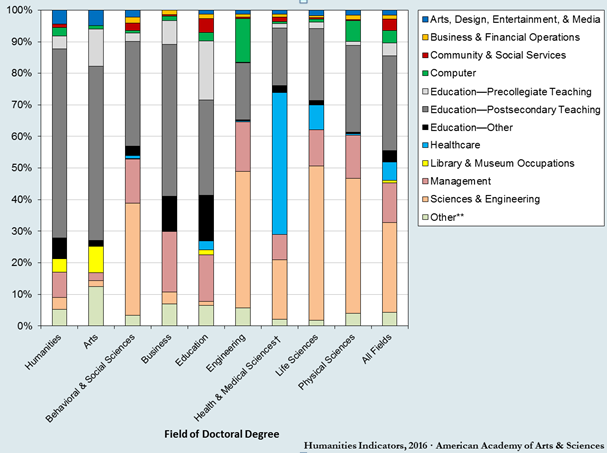You have /5 articles left.
Sign up for a free account or log in.
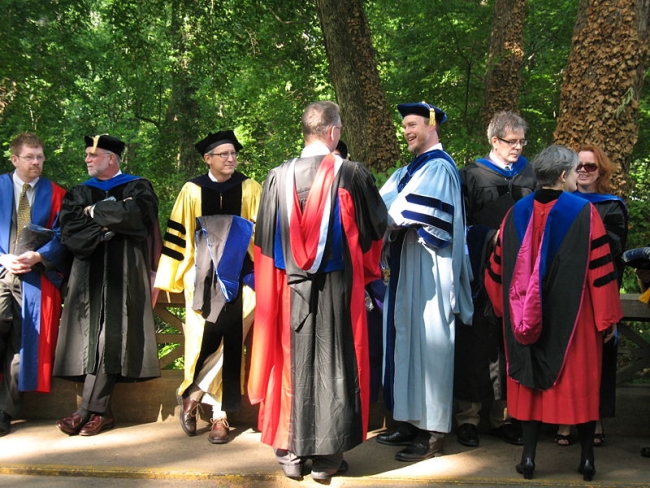
Faculty members at Emory University
Uri Rosenheck
For years, many humanities leaders have urged doctoral students in their fields to consider jobs outside academe -- and have encouraged graduate departments to prepare their Ph.D. students for careers in fields other than higher education.
An analysis released today by the Humanities Indicators Project shows how different job patterns are for those with humanities Ph.D.s (where academic work remains the norm) compared to other fields, which except for the arts send the vast majority of Ph.D.s to jobs outside higher education. Not surprisingly given some of the fields that employ nonhumanities Ph.D.s, people with humanities Ph.D.s earn less than Ph.D. recipients in other fields. The new analysis also shows substantial gender gaps in the pay of Ph.D.s across disciplines.
The project conducted its analysis by using data from the National Science Foundation's National Survey of College Graduates.
The Humanities Indicators Project, part of the American Academy of Arts and Sciences, found that in 2013, 60 percent of employed humanities Ph.D.s were teaching at the postsecondary level. Across all fields, only 30 percent of employed Ph.D.s work in postsecondary education. The only category of disciplines even close to the humanities in postsecondary higher education employment is the relatively small category of the arts.
Among doctoral degree recipients in engineering and the life, physical and medical science fields, 18 to 28 percent have postsecondary jobs, while the behavioral and social sciences are in between the humanities and the other sciences.
Employment of Ph.D.s, by Broad Disciplinary Categories, 2103
Among employed humanities Ph.D.s, the analysis found some gender differences. Men were more likely than women to be employed in nonteaching positions in higher ed education (typically administration). Women were more commonly found in management positions (outside higher education) and in precollegiate education jobs than were their male counterparts.
Occupations of Humanities Ph.D.s, by Gender, 2103
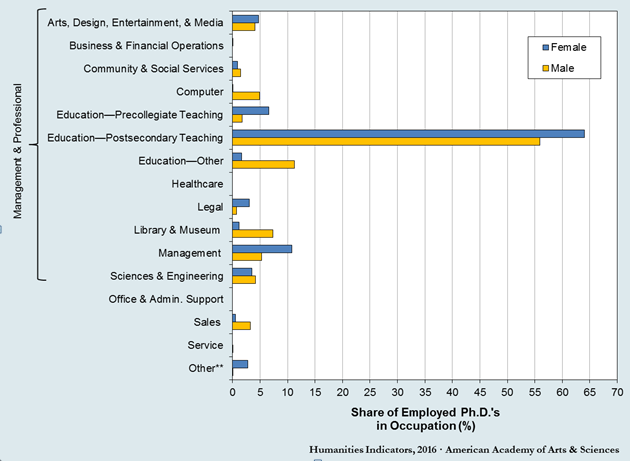
When it comes to pay, the gap between Ph.D.s in the humanities and every other field was significant. (The total number of arts Ph.D.s was too small to analyze and so was excluded.)
Humanities Ph.D.s who were working in 2013 reported median earnings of $75,000. The median across fields was $99,000, with engineering doctorates reporting the highest median, at $124,000.
Despite that wage gap, the analysis found encouraging news for those at the top of the humanities Ph.D. salary range. The top 25 percent of humanities Ph.D.s earned more than did half of Ph.D. recipients in every other field. This is explained in part by a larger gap in the humanities than in other fields between high earners and those at the median.
Median Annual Earnings of Ph.D.s, by Field and Gender
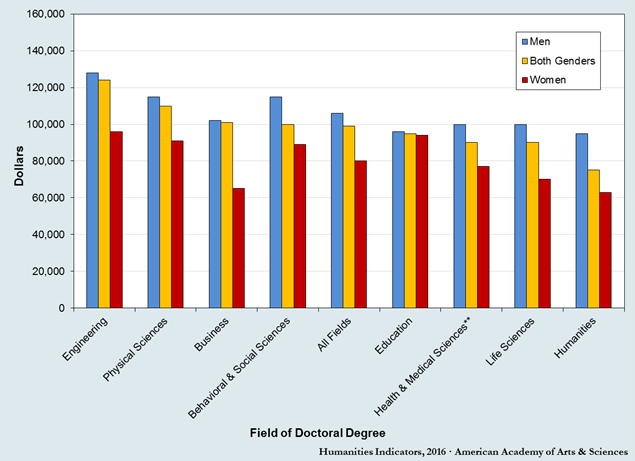
The gender gap in salaries is more pronounced in the humanities than in most other groupings of employed Ph.D.s.
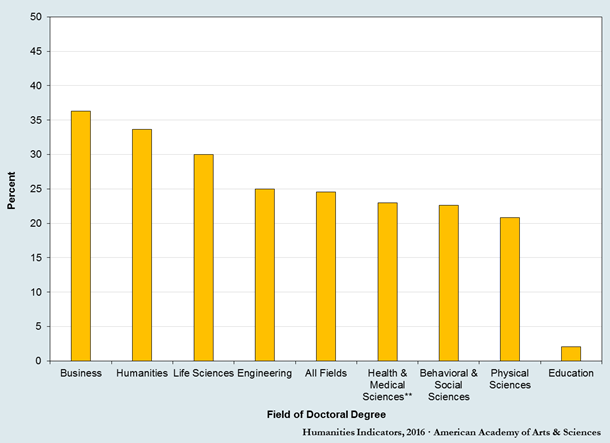
The Humanities Indicators Project also looked at employment of those whose highest degree is a master's. Here, too, the humanities differ from other fields in that a significant number are employed in postsecondary teaching -- a far larger share than is true for any other field.
Occupations of Holders of Terminal Master's Degrees

Robert B. Townsend, director of the Washington office of the American Academy of Arts and Sciences, said he suspected that the numbers are influenced in part by the sharp decline in new humanities jobs in the years since the economic downturn of 2008. But since the study examines all employed Ph.D.s, the situation for humanities Ph.D.s could get even worse if new doctorates continue to focus on academic jobs.
"The comparison to the other fields suggests that the problem is not with oversupply, but rather with the training culture and perceived career pathways for humanities Ph.D.s," he said. "Unless and until doctoral training in the humanities prepares students for a broad range of careers, graduates will be subject to the boom-and-bust cycles of the academic job market."
Follow me on Twitter @ScottJaschik.

